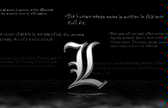

Rhyming dictionary. Words for light. Write Out of My Mouth. Accents. Writing with Rhythm. By Mark Nichol Think of all the things you do each day, including mundane tasks like getting dressed, cooking meals, and speaking to other people. They all involve patterns or random sequences of ebb and flow: rhythm. Writing is like that, too. Just as with any other activity, rhythm in writing can occur automatically, but it’s improved by conscious attention.
Here are five tips for enhancing your writing by attending to rhythm. 1. For inspiration, listen to a musical composition, noting the variety of measures. 2. Note, too, that writers are inclined to introduce the most important element of a sentence at the beginning; the key component should be provided early on, right? 3. 4. Conversely, the sentence structure describing a sequence of events in a thriller or a passage detailing an exciting incident is probably most effective in brief bursts of short, simple words. 5. Words to use more. Avoid using the word 'very'.
Three Telling Quotes About ‘Very’ Substitute ‘damn’ every time you’re inclined to write ‘very;’ your editor will delete it and the writing will be just as it should be. ~Mark Twain‘Very’ is the most useless word in the English language and can always come out. More than useless, it is treacherous because it invariably weakens what it is intended to strengthen. ~Florence KingSo avoid using the word ‘very’ because it’s lazy. A man is not very tired, he is exhausted. Don’t use very sad, use morose. Language was invented for one reason, boys – to woo women – and, in that endeavor, laziness will not do. If you enjoyed this, you will love: If you want to learn how to write a book, join our Writers Write course. by Amanda Patterson © Amanda Patterson.